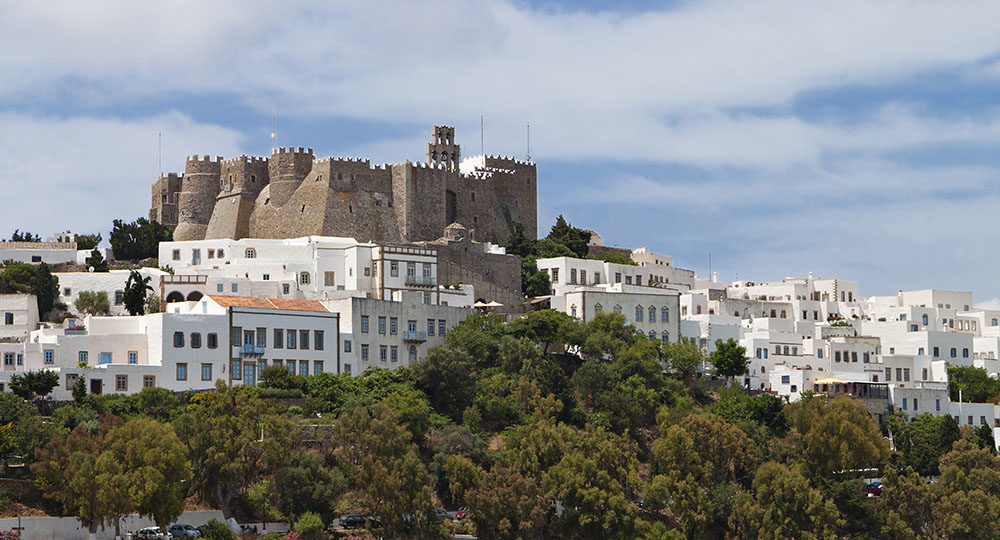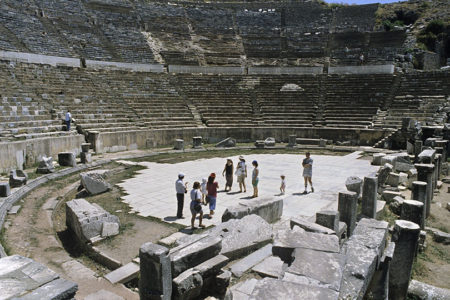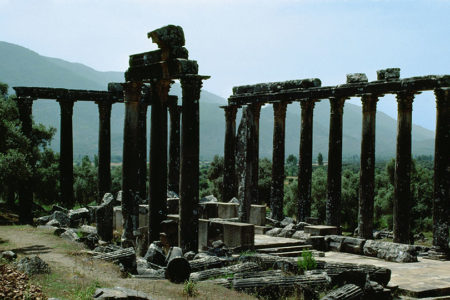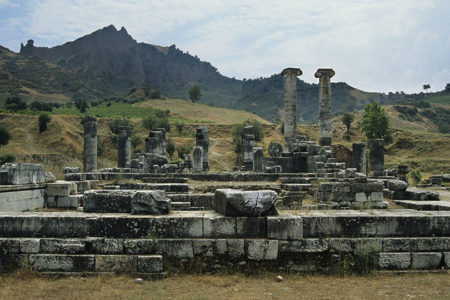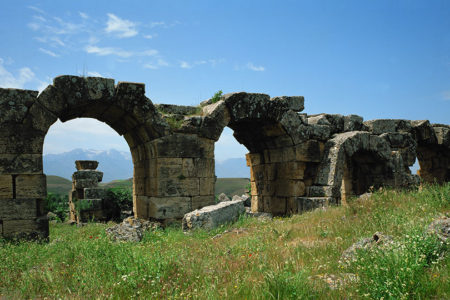In Exile for the Word
John, the apostle and pastor of the church in Ephesus, was exiled to the island of Patmos in A.D. 95, according to church historian Eusebius. It was here that the book of Revelation—the final closing vision of God’s Word—was given to him:
I, John, both your brother and companion in the tribulation and kingdom and patience of Jesus Christ, was on the island that is called Patmos for the word of God and for the testimony of Jesus Christ. I was in the Spirit on the Lord’s Day, and I heard behind me a loud voice, as of a trumpet, saying, “I am the Alpha and the Omega, the First and the Last,” and, “What you see, write in a book and send it to the seven churches which are in Asia: to Ephesus, to Smyrna, to Pergamos, to Thyatira, to Sardis, to Philadelphia, and to Laodicea” (Rev. 1:9–11).
Patmos is located on the eastern border of the Aegean Sea. The northernmost of the Dodecanese Islands, it covers only 13 square miles (34 sq. km.) and, at its greatest length, is 15.5 miles (25 km.) long.1
The island is rich in Greek mythology, which records that “Patmos got its name from the word Patnos, which comes from the incident when Poseidon [Greek sea god] stepped foot on the island.”2 Other legends suggest “the name Patmos or Patnos comes from the mountain of Latmos that is located in Minor Asia where Goddess Artemis [daughter of Zeus, goddess of the hunt] was worshipped.”3
A tourist attraction today, Patmos boasts that it is the “Jerusalem of the Aegean.”4 But that was clearly not the case when Rome took over the island and used it in John’s day as a place to exile convicted prisoners, denying them legal rights and holding them ad infinitum without accusation or trial, subject exclusively to the whim of the evil Roman emperor, Titus Flavius Domitianus, also called Domitian (A.D. 81–96).
Church history says John survived being thrown into a vat of boiling oil in Rome. Livid with John’s constant preaching about Jesus, Domitian was so angry John did not die that he banished him to Patmos. John was probably 90 when exiled to the desolate island because he preached the Word of God with conviction and without apology. Apparently Rome sent its undesirables to Patmos to work in a mine.
It was here, in this barren place, that the Lord revealed the closing book of the Bible to His faithful servant. John had already penned the gospel account that bore his name, along with three vital epistles. But John was not yet finished. Through visions on a lonely island, he would be inspired to pen what has been called the Apocalypse, or The Revelation of Jesus Christ.
History indicates that John was on Patmos 18 months. Then Marcus Cocceius Nerva ascended the Roman throne due to the assassination of Domitian. Nerva released the exiles, and tradition holds that John returned to his beloved flock of faithful believers in Ephesus.
ENDNOTES
- “Patmos Island of Greece” <www.12net.gr/patmos/english/>.
- “Patmos: History” <www.greektourism.gr/patmos/historyuk.htm>.
- Ibid.
- “Patmos Island of Greece.”
